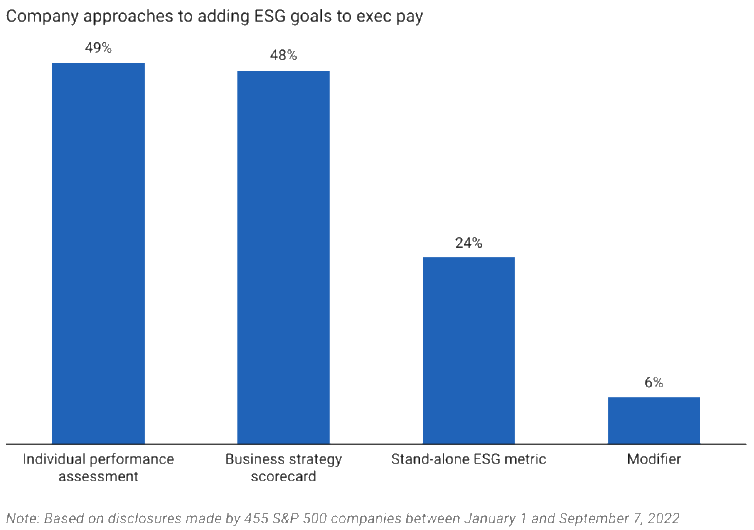Be Yourself
When it comes to establishing an ESG (Environmental, Social and Governance)-centric culture, retaining authenticity is a key piece of advice.
The Green Edge was recently invited to moderate a webinar on what it takes to move businesses towards ESG cultures. The webinar, hosted by City & Guilds Foundation with the online ESG learning platform Kineo, featured a panel active in the field of consultancy and training for ESG, including Fifty Shades Greener, Treo ESG, Business In The Community (BITC) and, of course, Kineo itself.
To polish off the webinar, we concluded with a question on the one piece of advice each of the panelists would give to a company – small or large – about to embark on an ESG programme. The responses were estimable but, to a degree, expected: install an executive to sponsor the ESG show; engage a partner to guide you through the process; train and bring everyone along on what people like to call these days ‘the journey’.
But one response came slightly out of left field: be authentic. And, post-webinar, that got us thinking about what authenticity means in an ESG context, together with what advice might be given to smaller firms struggling to get their brains – let alone their resources – around how to make some kind of progress in this space.
Be yourself. Image: Marzena P.
That it can be done, we have no doubt, and we’ve written about a few such authentic SME doers during the time we’ve been doing this Green Edge thing. There are those whose business propositions are entirely rooted in ESG, like TRACOuk and its environmental and social activities in the circular economy of office assets1. Then there are those who work in more conventional business sectors – like Yellow Interiors – but attempt at every juncture to incorporate environmental and social principles into their products and the services they provide2. Then there are those who may operate in what may be considered ‘brown’ sectors, like office cleaning, but take the type of ESG route that office cleaning firm NuServe has successfully implemented, to the point where considerations like minimising the environmental and social effects of its travelling cleaner workforce has contributed to its (re-)attainment of B Corp certification.
For the big corporations, of course, ESG is on many people’s lips and we’ve written about sustainability head-honcho recruiters like Weinreb Group that even provide their own job spec templates:
Company X is looking for a Chief Sustainability Officer (CSO) to lead our global Sustainability organisation, reporting into the Chief Executive Officer. The CSO will be responsible for leading the global Sustainability strategy, conceptualising and developing the vision and strategy to drive the company’s corporate sustainability efforts, as well as the roadmaps for implementing and executing these initiatives. This highly cross-functional role will work closely with organisations across the business to minimize the environmental footprint and to drive innovative solutions that support a net zero carbon future. This position leads a direct team of 8 with an extended team of 50 across the business. The CSO will report to the CEO, serve on the Leadership Team and serve as a Corporate Officer.
Source: Weinreb Group
So, the MegaCorps are well on top of ESG, right? Well, some are, but not necessarily all, if we take the degree to which executive pay is tied to ESG goals as a possible indicator.
Just a quarter of S&P 500 companies integrate ESG goals into exec pay using stand-alone ESG metrics. Image: Harvard Law School (Nov 22).
But how to tell if a company is being authentic – or otherwise – in its ESG efforts? Transparent ESG reporting and communications is one thing, perhaps along the lines (although not necessarily quite as bulky) as Toyota’s Sustainability Data Book. Third party verification and certification is another – lots of these, like ISO 14001 and B Corp. More pragmatically, look out for evidence of SMART - Specific, Measurable, Achievable, Relevant, and Time-bound – goals, together with a Materiality Analysis to show they’ve nutted out their priorities.
The transparency is a bit of a thorny one though – the EU found a year or two back that a little over half of green claims give vague, misleading or unfounded information, and two out of five have no supporting evidence. And the dark side of ESG reporting is greenwashing, where we need hardly remind our readers (but we will anyway) that there have been some notable names-and-shames: VW’s dieselgate; Coca-Cola, Nestlé and Danone with their plastic bottles; H&M’s Conscious Collection (Norway got exercised about that one, at least); Starbucks with its straws and cups. And who can forget the joke that was Beyond Petroleum?
So much for the big boys and girls. In principle at least, they’ve got lots of money and people – if they can recruit them – to throw at their ESG efforts. Establishing an ESG programme can be particularly challenging for SMEs and micro-businesses, for the opposite reasons. However, for those considering it, we offer the following thoughts, gathered from our conversations with various learned folk on the subject.
Start with a clear vision and purpose
Define what ESG means for your business and how it aligns with your core values and mission. Set realistic and specific goals that reflect your business’s unique context and capabilities.
Engage stakeholders early
Involve employees, customers, suppliers, and other stakeholders in the development of your ESG strategy. Seek their input to understand their expectations and priorities, ensuring that your ESG efforts address relevant issues.
Focus on material issues
Identify the ESG issues most material to your business and industry. These are the areas where you can have the most significant impact. Conduct a materiality assessment to prioritize issues based on their importance to your stakeholders and their impact on your business.
Set SMART goals
Establish Specific, Measurable, Achievable, Relevant, and Time-bound (SMART) goals for your ESG initiatives. Break down larger goals into smaller, manageable actions to make progress more attainable and trackable.
Leverage existing resources and partnerships
Utilise industry resources, tools, and frameworks (B Corp is one such example) to guide your ESG efforts. Perhaps you might partner with local organisations, NGOs, or other businesses to share knowledge and resources.
Integrate ESG into business operations
Embed ESG considerations into your day-to-day operations and decision-making processes. Ensure that all employees understand and are committed to your ESG goals.
Communicate transparently
Be open about your ESG journey, including successes, challenges, and areas for improvement. Regularly update stakeholders on your progress through reports, newsletters, and other communication channels.
Monitor and measure progress
Implement a system for tracking and measuring your ESG performance. Use key performance indicators (KPIs) to assess progress and make data-driven decisions.
Foster a culture of continuous improvement
Encourage a mindset of continuous learning and improvement within your organisation. Stay informed about emerging ESG trends and best practices, and be willing to adapt your strategies as needed.
Utilise technology and innovation
Explore technological solutions that can help you achieve your ESG goals more efficiently. Innovations in areas like renewable energy, waste reduction, and supply chain management can be particularly impactful.
Engage in industry and community initiatives
Participate in industry-wide sustainability initiatives and standards. Engage with local community projects and contribute to social causes that align with your ESG goals.
Seek external validation
Consider obtaining certifications or third-party assessments to validate your ESG efforts. Certifications like B Corp or ISO standards can enhance your credibility and demonstrate your commitment to ESG principles.
Scale your efforts gradually
Start with small, achievable projects and scale up as you gain experience and resources. Focus on creating a solid foundation before taking on more ambitious ESG initiatives.
And above all…
…be authentic and avoid greenwashing. Ensure your ESG claims are honest and backed by evidence. Focus on making real, substantive changes rather than just promoting a positive image.
Oh, and you might also consider talking to some of the folks from the webinar we mentioned earlier. And perhaps look for some ESG training - lots of it out there, but you might like to start with an online module or two from Kineo.







